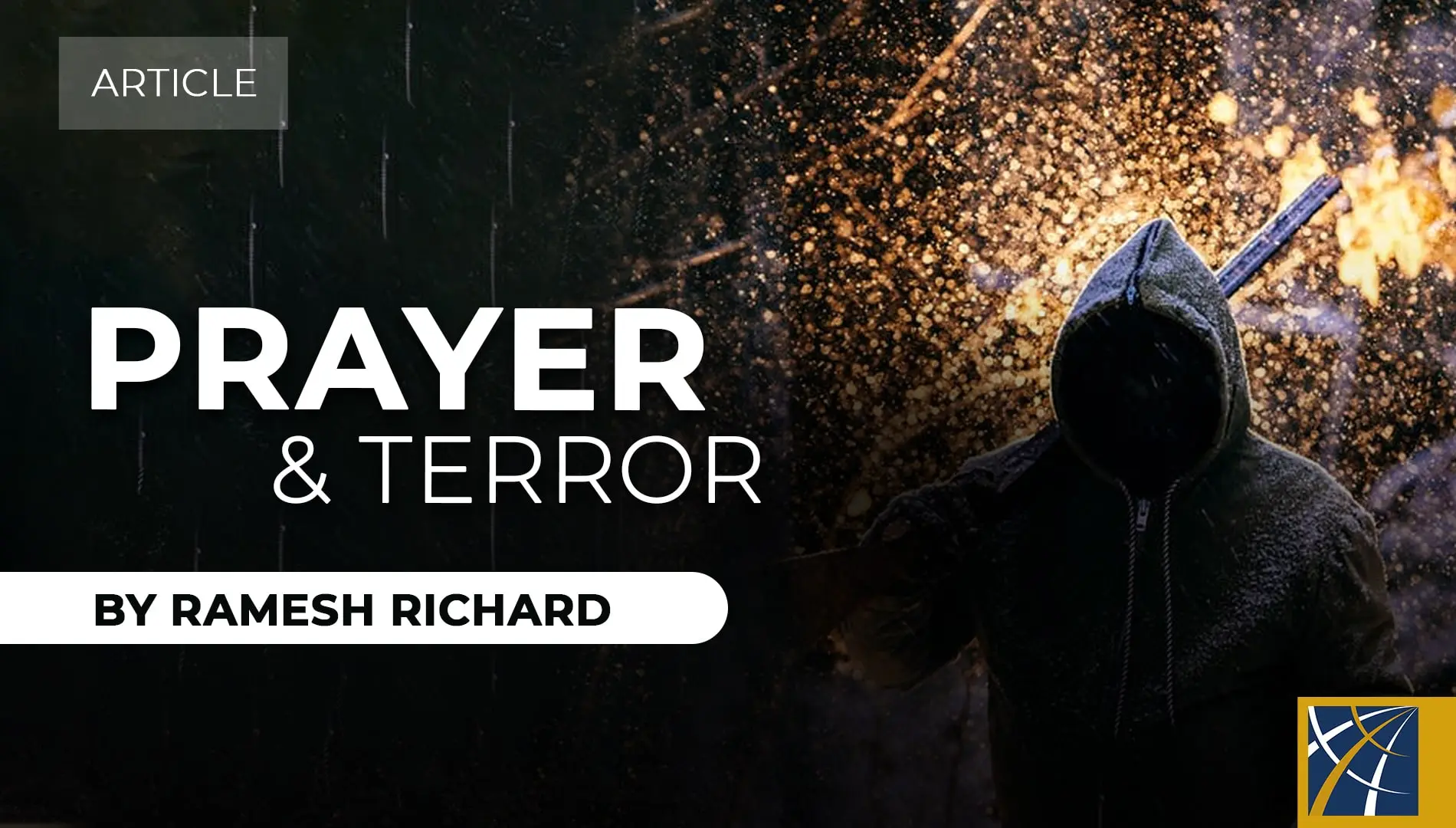by Ramesh Richard
“I am a self-made man,” the braggart claimed. To which a child asked, “Why did you make yourself like this?”
I write this article fresh off a 12-day, five-country trip—three of those countries in the chaotic Middle East. I, too, am asking our technologically advanced, self-made world: “Why did you make yourself like this?”
Did we really anticipate civilization would “progress” this way?
As we became more fully wired, the world expected more tolerance and harmony. Yet it seems anything we have gained from scientific progress has been lost in social and moral regress.
Earlier this year more than 270 Nigerian girls and women were abducted from a school. They are still held hostage, and more mass kidnappings have occurred since. Islamic extremists have mounted a bloody campaign to establish a caliphate, showing off barbaric executions on YouTube. Though laws have changed, hearts haven’t.
Networking was supposed to keep us all interacting rather than interfering, sharing rather than scaring each other. Yet, thanks to our advanced technologies, these heartbreaking events are repeated innumerable times in ever-grimmer detail, accompanied by mushrooming trailers of bleak commentary. Words like “metastasizing” (UN High Commissioner for Civil Rights), “apocalyptic” (US Defense Secretary) and “expanding chaos” (New York Times column) are common in my current readings.
Financial Times columnist Gary Silverman notes social media has been decidedly more anti-social than generally expected:
It was easy to assume that people would find happiness in their new opportunities to engage in direct, unedited discourse. But what if the opposite is true? What if people don’t like who they are meeting? What if it hardens their hearts or sours their stomachs to deal with all these strangers from strange lands? What then? (emphasis added)
What then? That is another of my questions. Here are three options for believers.
- To continue in unbiblical optimism—a “the world gets better every day in every way” theory. The youngest among the world’s richest men, Facebook’s chief executive, wrote these words some time ago: “When I think about the world today, the thing that amazes me most is how many people’s lives are getting better every day by just getting online and joining the knowledge economy.”
Life getting better every day? Not sure. In every way? Definitely not. It may be technologically easier to communicate, but the human heart still governs communication content.
- To give up on people in unbiblical pessimism—a “shake off the dust of our shoes” theology. This way of thinking allows social discord to discredit any possibility for progress. We give up on people’s futures. From the safety of our homes and lands, systems and securities, we let them go to hell—literally!
- To follow a biblical realism—a “there will be wars and rumors of wars but the Son of Man will come with great glory” (Matt. 24) perspective. This way of thinking is neither self-attributed optimism, nor situation-defined
pessimism, but a biblically-oriented realism. It’s a perspective based on an objective assessment of history’s progression through the eyes of the Creator and Redeemer and Judge.
Biblical realism was the conviction I sensed repeatedly during my recent travels among believers in some of the most fearful places on the planet. Here is their response to “What then?”
First, they affirm God’s sovereignty over human affairs. While “convert, pay or die” ultimatums threaten death, they believe Jesus has placed them as believing witnesses in the region. One noted, “We were born here, we live here, and we will die here. So we shall use this massive struggle between God and Satan, good and evil, love and hatred, peace and strife for God’s purposes to save people.”
Second, they also see disorder, violence and chaos as generating ministry opportunities. A pastor told me, “All our lives, we have been praying for opportunities to present the Gospel to our anti-Christian neighbors.” Now large numbers of them have turned on themselves, having developed a terrific distaste for their religion (but not their culture or language), and are discovering the Lord Jesus Christ through both supernatural and ordinary means. Better yet, these converts, so enthralled with their newfound faith, return to their former locales to take the Good News to their neighbors.
In one country I visited, every home featured a “shelter” room, and in high-rises, people congregate in stairwells during bombing attacks. One 86-year-old lady, upon hearing the “code red” sirens, regularly joins her frightened neighbors for hours of evangelizing. “They are a ready and captive audience,” she noted.
Our Middle East friends serve everything from meals to math to refugee families, always with the name of Jesus and in the Spirit of Jesus. That’s the biblically realistic answer to “What then?”
We are indeed strangers thrown into a shared anxiety, fearing chaos coming to a place near us. We may not like those we meet in life’s stairwells, but nearly all of us hope for physical safety—the most basic of human needs. We shall not diminish the dangers by optimistic self-talk. Nor should we dismiss the eternally lost while preoccupied with our own stuff.
Instead, we must realistically assess the situation under the transcendent God, who runs the progress/regress of history. As we read in the Bible, much worse is yet to come (death to one-third of humanity, Rev. 9:13ff). We must seize human anxieties as opportunities to do good in the midst of suffering.
What then? Let’s reach into large numbers of desperate souls around our broken world so they can experience lasting solutions—from now into eternity.






